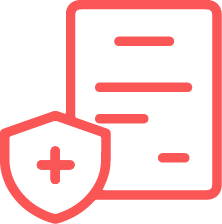Over the last couple of years, the data integrity topic has received more and more attention. Recently, the American Food and Drug Administration (FDA) issued a draft guidance on data integrity related to current Good Manufacturing Practice (cGMP) compliance. Other regulatory agencies – such as the European Medicines Agency (EMA) and the Medicines and Healthcare Products Regulatory Agency UK (MHRA) – are focusing on data integrity as well, especially in their publications.
Although these guidelines are ‘non-binding recommendations’, we can’t disregard the fact that data integrity is usually a ‘hot topic’ during audits and inspections in the pharmaceutical industry. But why is data integrity so important? And how do pharmaceutical companies ensure compliance? Let’s take a closer look at data integrity.
Data and our Digital Society
Years ago, quality systems and regulated processes in the pharmaceutical industry were governed on paper. Lab notebooks, clinical trial binders, master recipes, batch records, and procedures are some examples of these written or printed documents. Wet ink signatures and dates gave a clear indication of approval details.
Nowadays, entire pharmaceutical processes have been digitalized, resulting in various advantages. We can look up data faster, regardless of where we are, make true copies and backups, and bring data from multiple source systems together to provide new insights – to name a few new possibilities.
However, our digital society also entails risks regarding data integrity. Entering data into electronic systems increases the risk of human errors. In addition, it becomes harder to determine original documents, since e-mailing, downloading, uploading and sharing of documents is common practice. In short, the current digitization asks for a different approach to data integrity.
The importance of data integrity
But why is data integrity so important? In a special report on data integrity, Pharmaceutical Engineering® lists three key points. First, regulatory agencies and the pharmaceutical industry need accurate and reliable data to ensure the safety, efficacy, and quality of a product.
Second, data integrity is crucial to guarantee trust between the industry and regulatory agencies. Third, regulatory agencies cannot constantly audit companies to inspect every little part of processes and production.
In short, data must be complete, consistent, and accurate. Problems with data integrity cannot only result in patient harm but also in product recalls, regulatory compliance, and company image problems.
How do companies guarantee data integrity? The ALCOA Framework.
According to the FDA, “ALCOA” is an important framework to help companies in achieving data integrity. ALCOA means that data should be:
Attributable
When creating a record, companies need to know who created it, when, and why.
Legible
Even in a digital age, readable data is not always self-evident. Ensuring records are readable and permanent assists with their accessibility throughout the data lifecycle. This includes storage of human-readable metadata that may be recorded to support an electronic record.
Contemporaneous
Companies need to record data at the time the work is performed, by using the server time from an acknowledged organization for example, and by adding the right time zone.
Original
Original data, sometimes referred to as source data or primary data, is the medium in which the data point is recorded for the first time.
Accurate
Of course, data can’t contain any errors, which includes both human and automated errors. They should be free from errors, complete, truthful, and reflective of the observation.
QbD Group is a member of ISPE, the international society for professionals involved in the engineering and manufacturing of pharmaceuticals and related products.
We are happy to help your company with support or advice on data integrity. We can assist you in identifying critical records, mapping the records’ lifecycle and flow, and assessing technical and procedural data integrity gaps to define an overall approach leading to data integrity compliance. Contact us to discover the possibilities.






















.jpg)







